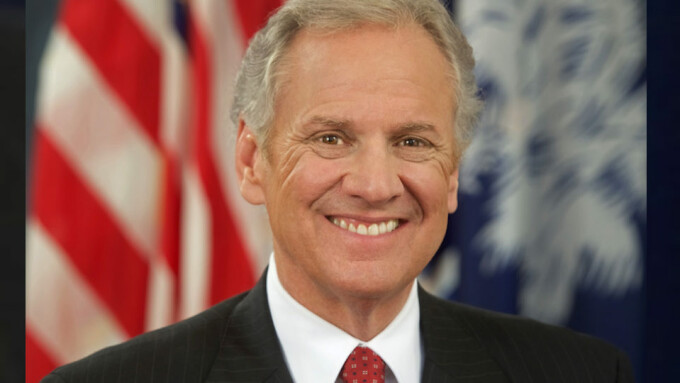COLUMBIA, S.C. — South Carolina’s Republican governor, Henry McMaster, held a combined ceremonial signing Wednesday for two laws: the state’s new age verification law for viewing adult content and a controversial ban on gender-affirming care for trans youth.
In a statement McMaster said that both laws aim to “protect the innocence” of the state’s children against various “threats.”
H 3424, South Carolina’s version of the age verification bills being sponsored around the country by anti-porn activists, is also known as the “Child Online Safety Act” and was originally introduced in December 2022. It passed the legislature on May 15 and goes into effect Jan. 1, 2025.
Although McMaster actually signed H 3424 on May 21, it was included in Wednesday’s event alongside H 4624, the state’s “Help Not Harm Bill,” which denies gender-affirming care to trans minors and limits care to trans adults. The joint ceremony dubbed both controversial laws “child safety legislation.”
“These signings reflect our commitment to ensuring the health and well-being of all our state’s children from damaging influences online and off,” McMaster said about the purely ceremonial event and photo op.
The Child Online Safety Act, the governor’s office stated, “protects minors from harmful online content by mandating websites containing 33.33% or more material deemed harmful to minors implement an age verification system to ensure that users under 18 years old cannot access the material. Harmful online content is defined as material or performances that depict sexually explicit nudity or sexual activity that an average adult applying contemporary community standards would find that the material or performance has a tendency to appeal to a prurient interest of minors in sex.”
Free Speech Coalition (FSC) Executive Director Alison Boden told XBIZ, “It’s unfortunate that South Carolina chose to join its neighbors in passing an ineffective website-based age verification mandate despite knowing that it’s unconstitutional.”
The Child Online Safety Act, the governor’s office claims, “protects minors from harmful online content by mandating websites containing 33.33% or more material deemed harmful to minors implement an age verification system to ensure that users under 18 years old cannot access the material. Harmful online content is defined as material or performances that depict sexually explicit nudity or sexual activity that an average adult applying contemporary community standards would find that the material or performance has a tendency to appeal to a prurient interest of minors in sex.”
H. 3424 also “makes websites that produce obscene material or promote child pornography or child sexual exploitation liable to an individual for damages, court costs, and reasonable attorney fees as ordered by the court and is open to class action suits,” the governor office added.
Free Speech Coalition (FSC) Executive Director Alison Boden told XBIZ, “It's unfortunate that South Carolina chose to join its neighbors in passing an ineffective website-based age verification mandate despite knowing that it's unconstitutional.”






